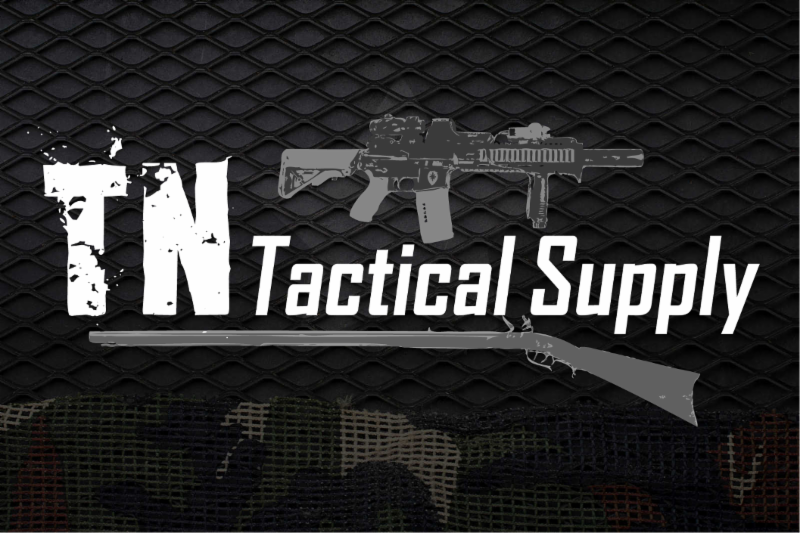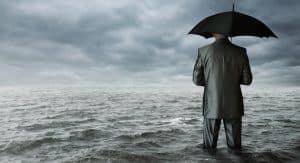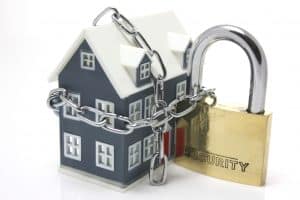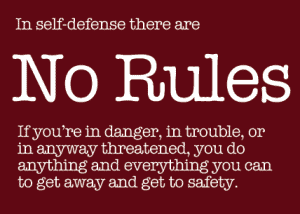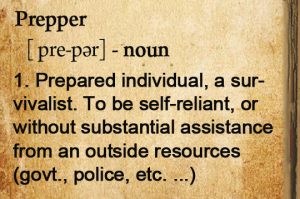|
||||||||||||||||||||||||||
Basic Prepardness
World Events, Are We Headed For Hard Times?
Well we have a new president and part of a new administration installed and things here in the US as well as on the global scene do not look like they are improving much, yet. I have no doubt much of it is due to the efforts of our enemies, both foreign and domestic, to test our newly elected leadership. At least that is what is displayed on the daily reports we see on our TV’s, internet sites and hear on our radio broadcasts. My question is are we headed for Hard Times?
On the domestic front we have issues dealing with illegal immigration, healthcare reform and the establishment’s political parties power struggle and their opposition to an outsider taking power in Washington.
On the world’s stage are threats against Israeli, continuing ISIS attacks who knows where next, unrest all over the Middle East, North Korea’s missile tests. Then there is China’s aggressive developments in the South China Sea and Russian troops involvement in the Syrian conflict within less than a mile of our US Troops stationed there.
With the potential for serious conflicts both within the US and worldwide that seem like they will be impossible to avoid, what can you and I do to protect and hopefully improve our family’s lifestyle in the coming months and years?
What can you or I do?
The truth is nothing you or I do will affect or change the course of where our world’s events are heading. The best we can do is work on the things that will improve each of our family’s situations. Work smart as you prepare for hard times, hope and pray for them to be not as bad as they could be.
I have faith that our heavenly father has a path for those of us who have chose to follow the teachings of his son Jesus Christ. While my faith is strong, that alone is not what my family and close friends are doing daily in small steps to prepare for tougher times. I strongly suggest you work on your plans, build your network of like minded people while times are semi normal, learn skills and train, just in case.
Advice for the beginning Prepper Part 6 Security & Self Defense
Where and how to start your journey towards a more prepared house hold
Part 6
Security / Self Defense
Simple Definition of security
- : the state of being protected or safe from harm
- : things done to make people or places safe
Simple Definition of self–defense
- : the act of defending yourself, your property, etc.
- : skills that make you capable of protecting yourself during an attack
I recommended Knowledge as one of the first things you should try and gain in part 1, so in part six we will look at another basic category of Items or Stuff I believe is needed for emergency preparations to keep yourself and family safe and secure and today that is Security & Self Defense.
While I could have treated these as individual topics I decide to try and cover both since from my viewpoint they are interconnected with each other.
This is possibly one of the more difficult topics to cover because of variations in location, available of funds, physical abilities and motivation among other things. For many people living in the city or suburbs, their local Police, Fire Department and EMS personnel are typically what they rely on to keep them safe and secure. The implementation of the 911 emergency response system has saved countless people’s lives and is a worthwhile project.
As a Prepper the thought process tends to move further in self-reliance for personal safety and property protection, we like to add additional layers so to speak for redundancy. It has been shown that in large events, the first responders can be over whelmed when there were more injuries than the system was designed to handle. Depending on the situation and your location 911 may not be available in the time it takes for help to arrive so I recommend some basic preparations for your family are in order.
You should have on hand some basic medical supplies and knowledge of basic first aid. While I’m not suggesting you should know how to treat a gunshot wound or preform field surgery but rather have the ability to control bleeding, know how to treat for shock, and knowing CPR could mean the difference in a loved one, a friend or neighbor making it or not. The Red Cross and other organizations have classes and every adult should take a class and then repeat every couple of years as a refresher. And there is nothing wrong with learning how to treat a gunshot wound, just seek out the proper training, especially if you are a gun owner and participate in shooting sports. Whenever I’m at a local gun range or just out shooting with friends I have a military style IFAK, Individual, or in some circles Improved First Aid Kit, in my bag that includes supplies to control bleeding.
What about fire protection for your home and family. Have you ever discussed with your family what to do if there is a fire in your home? Hopefully everyone would have several ways to exit in case of a fire and that should be practiced at least annually. You should have at a minimum two fire extinguishers in your home, one located in the kitchen and the other somewhere central and easily accessed. An ABC Rated is the best and will work on all types of fires and 3 to 5 lbs. is the most common size and for what they will do I consider them to be cheap insurance.
Speaking of insurance, if you don’t already have renters or property and flood insurance for whatever reason, it’s a good idea to have it and I’ll leave it at that.
My former job in the corporate world required me to travel overnight quite a bit and as a precaution for my family we decided to have a monitored home security system installed. When researching the different providers and systems on the market I was amazed at the huge variation in costs so if you decide to go that route do your research before you spend your money and sign any contracts.
Weapons for personal defense range from non-lethal options such as Pepper Spray, Tasers, and Batons. (Maybe a good guard dog fits this category too). Moving on to the more lethal weapons you have knives, swords and guns of all shapes, sizes and manufacturer’s. I’m not going into great detail on what your choice of any defensive weapon should be, that will depend on your personal preference, affordability and willingness to seek out professional training for which ever you choose. In our immediate family each adult in our house hold has a pistol and knows how to safely operate it as well as where the home shot gun is stored and its safe operation.
If you chose to own firearms for competitive shooting, hunting or personal protection it is important that you allocate some time and money to get training for whichever endeavor you desire to participate. Simply owning a firearm does not make you competent and skilled in its operation and neither does an annual trip to the range for target practice or to sight in your rifle for hunting season. Check with your local gun ranges for recommendations on good trainers and classes.
Personal defense may also include the skill set found in learning a martial art of some sort if your physically capable and can afford the cost. If you are in a situation where a weapon is not allowed to be carried this could be a really good skill to have.
As mentioned earlier, if you can be a responsible pet owner and they are allowed in your residence, a dog can be a pleasure to have. It’s going to be based on your personal preference as far as size and breed but almost all dogs have a natural instinct to alert and protect their owners if there is a threat. If a dog is in your future please consider seriously getting a rescue or adopting one. A local internet search should have multiple possibilities in your area.
As always please add your thoughts, additional ideas and comments below.
Advice for the Beginning Prepper
Where and how to start your journey towards a more prepared house hold
Part 1
To be quite honest, we have been doing this for a while and sometimes I forget that every day new people realize that being prepared for life’s little inconveniences like power outages or other local emergencies just makes common sense. I had a conversation with a new customer who was just getting started in Prepping and he was in overwhelm and asked for some advice on how and where to start. While I’m aware there is thousands of “How To” on this subject available on the internet I’m going to throw the way we did it and continue to add to our preps into the mix into cyberspace.
The problem is when you look the big picture and possible scenarios to consider it can be overwhelming and seem impossibly expensive for an average person or family to accomplish. If you have suddenly awakened and have a personal perception that “Stuff’s Happening and I got to get this done now” time table, then up goes the pressure and difficulty.
First, take a breath and calm down and S.T.O.P….
Stop, stop panicking, it’s useless, a waste of your time, brain power and accomplishes nothing.
Think; think about your current situation and whatever your possession’s are and where you are located at today is your reality so this is your starting point, period.
Observe, observe and take note at your present location, what your current skill sets are, assets, resources and available research sources.
Plan, plan to put a pen to paper and create your task and supplies lists that contain realistic goals and deadlines.
The harsh reality is unless you have an unlimited amount of money, energy and a workforce on the payroll, you are not going to be able to be 100% prepared for every possible calamity that could occur. In fact even if you do have all of the above, it probably still could not be achievable for an end of the world event, TEOTWAWKI. (I guess if Bill Gates is a prepper and wanted too he might to be able to pull it off but we don’t have his check book).
Reminds me of when I bought a 13KW diesel generator off a guy on Craig’s list back in 2007. He actually had two identical ones for sale and they had belonged to his parents. Story was that his parents had recently passed away and he was selling off some of the estate items. His parents were convinced the roll over into the year 2000 and that the Y2K bug was going to bring every computer and our nation to its knees. They had bought two generators, a 500 gallon diesel fuel tank and electrical transfer switches to run their entire home if the power grid went down. They had also bought 2 years supply of freeze dried food, water filters and lots of other preparedness supplies……And never used any of it. The generator only had 8 hours of running time on it when I bought it. When I asked about the freeze dried food, since I knew most manufactures advertise a 25 year shelf life, he told me he had already donated it to the local food bank. I can only hope they put it to good use and did not throw it away not realizing what it was.
The reason I even bring this up is although they had the funds to make this kind of investment, and believed the threat was real, they did not use the assets so other than piece of mind, and what good did it all do them? Maybe that generator gave them power for a couple of hours during a thunderstorm, or maybe that was just monthly exercise time.
In my opinion it’s the best way and smarter for us to becoming more prepared was to do things in such a way that there are benefits to us as a family even if no major event ever occurs. (Unless you’ve got the money and you can afford to invest in Piece of Mind, then more power to you brothers and sisters).
Get started slowly and over time improve your knowledge, tools, supplies and readiness if times get tough. The time you spend learning new skills or spending money to acquire a useful tool should be a positive thing for your life and not just another thing or expense with little real benefit.
I did a series of post a couple of years back, Commonality in Prepping for Disaster Events Part 1, and I have a link to take you there if you want more in depth coverage which covers some different events that are commonly prepared for . In a nut shell many if not all disaster’s share common disruptions of basis services that we should have some preparations set aside to make things more comfortable and survivable.
There are 5 basic categories of scale
Individual – Localized – Large Scale – National Scale – Global
And then there are Events:
Loss of Job, Divorce, Death in the Family, Fire, Flood, Hurricane, Tornado, Pandemic, Famine, Food Shortages, EMP, World Wat III, Nuclear War, Invasion, Financial Collapse, Earth Quake, Riots and so on.
Lots of possibilities and threats out there in our world aren’t there but how many apply to where you live and work?
From my perspective that differs with some experts in the niche are that the basic human needs for survival and preparedness that allow us to have relative comfort and security are as follows.
- Knowledge
- Water
- Shelter
- Food
- Energy
- Security
- Low or No Debt
- Trade Currency
Then if we include the rule of 3’s for survival. Humans can survive for:
- 3 minutes without air to breath
- 3 hours without shelter (in harsh conditions)
- 3 days without water
- 3 weeks without food
Let’s expand on these, first is knowledge. I put it at number one to work on because it can never be taken away from you once you have it and practice using it from time to time. Knowledge, unlike possessions and stuff cannot be stolen or taken away by a flood, fire or authorities.
Knowledge is having the skills and ability to use the things you have to work with. Without knowledge and training (or practice) what good is a chainsaw, a hatchet, a computer or an airplane to you or me?
Most of us have basic cooking skills and know how to fry an egg. But other useful skills in the cooking realm would be how to preserve food by canning. Canning is a valuable skill to know today because it allows you to save money over store bought products, know what kind of additives are in your food and know where your food is coming from. I strongly suggest you buy from local organic producers in your area.
Knowledge to should seek if you do not already have includes the proper use and care of any tools you may own or plan to acquire at some future time. That includes your choice of weapons used for hunting and home defense. If you are lacking in a specific skill for that chainsaw or that Mossberg shotgun, find a mentor or take a class.
Here is a basic knowledge / skills list that I think someone with a Prepper mind set should consider learning some of them. While no one I know possesses all these skills I think it’s a list worth reviewing, consider what interest you and how some would improve your life and add value today for you personally.
| Agriculture, Farming Expertise, Gardening |
| Accountant, Book Keeping |
| Alcohol Production & Distillation |
| Ammo Reloading |
| Architect, Home Reinforcement |
| Baker, Cooking Expertise |
| Bee Keeping |
| Beer and Wine Making |
| Biofuel Production |
| Blacksmithing |
| Chemist |
| Computer Programming |
| Construction |
| Defense Planning |
| Dentist |
| Doctor |
| Doctor’s Medical Assistant |
| Electrician |
| Electronics Repair |
| Engineer, Community Planning, Manufacturing, Electrical |
| Firearms Proficiency |
| Firearms Repair |
| Fishing |
| Food Preservation & Storage |
| HAM Radio Operator |
| Heating, Ventilation & Air Conditioning, (HVAC) |
| Heavy Equipment Operator |
| Home schooling, Tutoring, Teaching Experience |
| Horse Shoeing, Fairer |
| Hunting & Trapping Skills |
| Knife Making |
| Lawyer, Legal Assistant |
| Lumber Jack / Tree Felling |
| Nurse |
| Nurse’s Aid |
| Martial Arts Training |
| Manager, Planner |
| Mechanic, Automobile |
| Mechanic, Diesel Engines |
| Mechanic, Small Engine Repair |
| Military Training |
| Plumber |
| Ranching, Large & Small Animal Care |
| Security |
| Seed Saving |
| Sewing, Knitting, Weaving, Textiles |
| Small Appliance Repair |
| Soap Making, Candle Making, Hygiene Products |
| Stone Mason, Brick Working |
| Veterinarian |
| Web Site Design |
| Welding, Metal Working |
| Well Construction, Water Table Expertise |
| Wild Foods Expert |
| Wood Working |
| Writer |
To be continued…..
